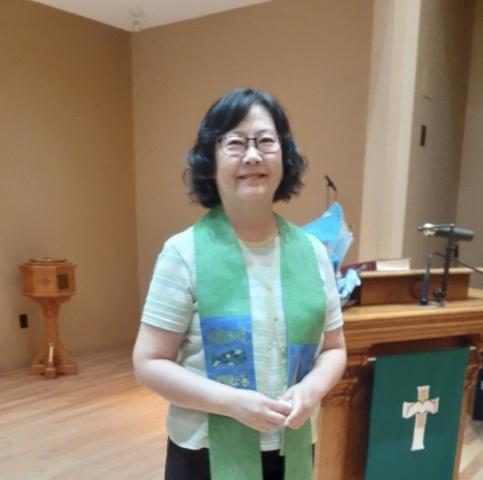Respecting differences and acknowledging diversity are important, but they’re only the beginning.

Learning
Many years ago, I preached at a community of faith as a pulpit supply minister while the lead minister was away. I was working for the Christian Education Coordinator while I was taking the Admission process. After worship, a member of the congregation asked me if someone else had written the sermon for me. I was shocked at this question! No ministers that I know will ask other people to write sermons for them. Had this person asked me that particular question because of my accent and different cultural background, which brings an assumption that I haven’t enough experience at Canadian churches? Would they have asked that same question if I was White, even a student? I was left feeling as though I was less educated, untrained, and generally not qualified to be a minister in The United Church of Canada particularly because of my racial identity. It made me doubt my qualifications and education to serve as a minister in the United Church.
Since I started working in the area of intercultural ministries, my life and ministry have been positively inspired, challenged, and changed. I have been encouraged to appreciate how beautiful and authentic the gifts are that I bring into ministry. People with diverse backgrounds have coloured and shaped communities and the United Church in many ways. Despite these positive changes and ways of honouring diversity, I still witness a lot of pain and suffering because of racism. Like me, many racialized ministers have faced discrimination in communities of faith.
While it’s important to respect differences and acknowledge diversity, it’s just the beginning. Through intercultural ministries, I have become more aware of the power dynamics that perpetuate inequities through racism. This has empowered me to actively work towards creating an anti-racist church.
In May, Canada celebrates Asian Heritage Month. I often share stories about my ministry in Korea, which is still connected to my work in Canada as a racialized minister advocating for justice and equity. I share stories of racialized individuals working for justice and peace with predominantly White congregations to help them understand the experiences of racialized individuals in Canada and in the United Church. I believe this can be a starting point to create safe and inclusive communities of faith for all.
Racism should be seen as a systemic issue. Within this system, there are individuals who have personally experienced racism, and this requires both personal and collective efforts to bring about change. Anti-racism is a collective practice, and we need to support each other through mutual respect and a shared commitment to seeking justice, peace, and love in order to truly become an anti-racist denomination. I hope we can find ways to embrace our differences and work together respectfully in intercultural relationships.
Faith Reflection
As we reflect on Jesus’ life and ministry, and what he has done for people, we realize that the gospel is not just a bunch of pretty stories. The gospel is also filled with painful and uncomfortable stories, not only for Jesus, but also for the people who were around Jesus. Yet they are “good news” because they tell of a transformative way of living through life, death, and the resurrection of Jesus. If we read the gospels without understanding the way of Jesus’ living and ministering, without accepting the true meaning of Jesus’ love, it will be nothing.
The resurrection is more than an idea; one consequence was that the Holy Spirit was given to the church to continue Jesus’ ministry of transforming the world into the kin-dom of God. In this way, we need to understand racism as a system rather than simply a collection of personal experiences. Working to become an anti-racist church will take all of our collective efforts to overcome obstacles and to dismantle systemic racism. However painful that hard work may be, it is with this resurrection hope that we believe.
Living It Out
Anti-racism work can become an ongoing lifelong practice. Ask yourself: What did I become self-aware of today regarding racism and anti-racism? Self-awareness about ideas that have shaped our thoughts as people allows us to be clear about what we might be called to do to work towards anti-racism. Once you have deepened your self-awareness, what is a specific action that you might do in response?
—Grace EunKyung Lee (she/her) was ordained by the Presbyterian Church in the Republic of Korea in 2005. In addition to working towards becoming an intercultural church in Toronto, she has served rural communities of faith in culturally dominant communities. She is currently serving in congregational ministry at Waterford United Church, Ontario.
This reflection originally appeared in 40 Days on Anti-Racism 2022.